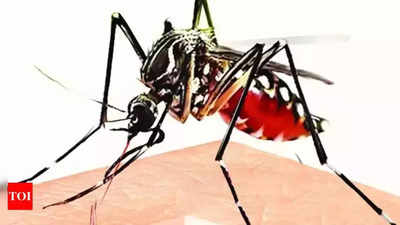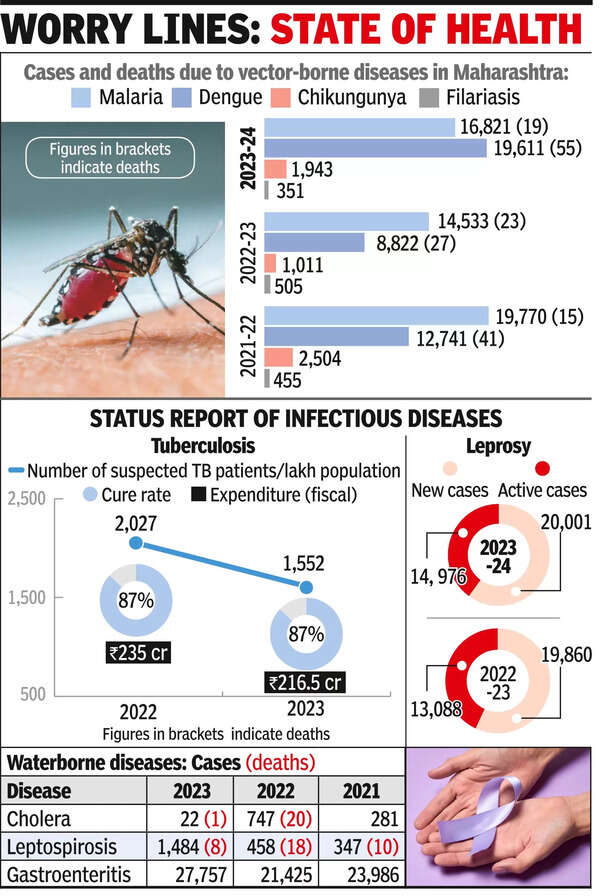- News
- City News
- mumbai News
- Dengue cases jump 122% in 1 year, malaria fatalities drop 17% in Maharashtra
Trending
Dengue cases jump 122% in 1 year, malaria fatalities drop 17% in Maharashtra
Maharashtra faces a concerning surge in vector-borne diseases like dengue, chikungunya, TB, and leprosy. Despite increased health spending, challenges persist with TB management. The region grapples with rising fatalities from dengue and a notable increase in leprosy cases, highlighting the urgent need for comprehensive public health interventions.

Representative image
As per the report, dengue cases surged from 8,822 in 2022-23 to 19,611 in 2023-24.The report highlighted dengue as a particularly concerning vector-borne disease, given a significant increase in fatalities from 27 to 55 in the same period. Major urban districts such as Mumbai (whose reporting centres have gone up from 22 to 880), Pune and Nagpur were notable contributors to both dengue cases and fatalities.

Malaria cases also saw an increase, from 14,533 in 2022-23 to 16,821 in 2023-24. But deaths caused by it declined by 17%.
Cases of chikungunya, which is also transmitted by the aedes aegypti mosquito responsible for dengue, more than doubled from 1,011 in 2022-23 to 2,504 in 2023-24.
A state official said the rise in dengue was a global problem and that overall weather conditions and heat have been contributing to an uptick in its transmission. Additionally, reporting has been strengthened for all vector-borne diseases, said the official.
On TB, the report said in 2022, there were 1,552 suspected patients per lakh population, with an 87% cure rate. By 2023, the figure rose to 2,027 but the cure rate stayed the same.
Dr Abhay Shukla, national co-convener of Jan Swasthya Abhiyan, was sceptic about the achievability of the national TB programme’s goal to eliminate the disease by 2025. He said despite govt’s repeated claims of progress, doctors on the ground report a rise in TB cases. “There seems to be a disconnect between the stated objective and the strategy employed to combat TB,” he said. The report also highlighted a reduction in expenditure towards TB management: Rs 235 crore was allocated in 2022-23, which decreased to Rs 216.5 crore in 2023-24.
An increase in challenges is also seen in the leprosy eradication programme. In 2023-24, new cases rose to 20,001, pushing the prevalence rate to 1.16 cases per 10,000 population from 1.03 cases in 2022-2023.
Quoting the report, state officials highlighted an increase in health spending. In 2022-23, expenditure under National Rural Health Mission amounted to Rs 3,631 crore, which rose to Rs 3,825 crore in 2023-24. Expenditure under National Urban Health Mission increased from Rs 233.7 crore in 2022-23 to Rs 373.3 crore in 2023-24.
End of Article
FOLLOW US ON SOCIAL MEDIA











